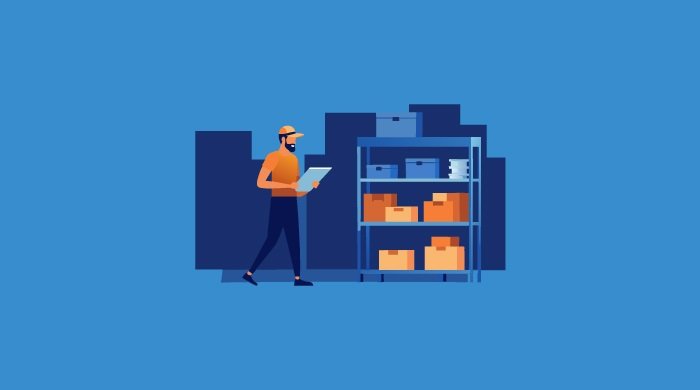In today’s global marketplace, the role of packaging in manufacturing extends far beyond merely protecting products during transit. It is a pivotal aspect of product design, consumer experience, sustainability efforts, and logistical efficiency. Modern packaging solutions in manufacturing are innovative and multi-faceted, designed to address a myriad of challenges from environmental concerns to supply chain optimization.
The Evolution of Packaging Solutions
The packaging industry has undergone significant transformation over the past few decades, driven by advancements in materials science, digital technology, and changing consumer expectations. Initially focused on durability and cost-effectiveness, the emphasis has shifted towards smarter, greener, and more user-friendly packaging solutions.
1. Smart Packaging: Incorporating technologies like QR codes, RFID tags, and sensors, smart packaging solutions offer manufacturers and consumers enhanced functionality. These technologies can provide vital information about product authenticity, supply chain logistics, and even user instructions, enhancing the consumer experience and improving supply chain transparency.
2. Biodegradable and Recyclable Materials: In response to increasing environmental concerns, there has been a significant shift towards using sustainable materials in packaging. Innovations in bioplastics, which are derived from renewable resources and can decompose naturally, and improvements in the recyclability of traditional plastics, are examples of how the industry is responding to demands for sustainability.
3. Minimalist Packaging: Reducing material use through minimalist packaging designs not only cuts down on waste but also reduces manufacturing and shipping costs. This approach aligns with the growing consumer preference for simplicity and sustainability, emphasizing the product rather than excessive packaging.
Enhancing Efficiency and Productivity
Efficient packaging solutions play a crucial role in optimizing manufacturing workflows and reducing operational costs.
1. Automation in Packaging Lines: Automation technology has revolutionized packaging lines in manufacturing. Automated packaging systems, using technology like servo drives and drive controllers can quickly and accurately handle repetitive tasks such as filling, sealing, and labeling, significantly increasing the speed of production lines while reducing labor costs and human error.
2. Modular Packaging Systems: Modular packaging equipment offers flexibility to handle various packaging formats and sizes with minimal downtime for changeovers. This adaptability is particularly beneficial in industries where products are diverse and production schedules are tight.
3. Integrated Packaging and Logistics: Advanced software systems can integrate packaging functions with inventory and logistics management, ensuring that packaging materials are available when needed and finished products are packaged in a way that optimizes space utilization and reduces shipping costs.
Sustainability and Environmental Impact
As environmental regulations become stricter and consumer preferences shift towards sustainable products, manufacturers are increasingly focused on developing eco-friendly packaging solutions.
1. Reducing Carbon Footprint: By using materials that are lighter and more environmentally friendly, manufacturers can significantly reduce the carbon footprint associated with packaging. For example, replacing glass with lighter recyclable plastics or using corrugated materials that require less energy to produce can make a substantial difference.
2. Enhancing Recyclability: Designing packaging with recyclability in mind is crucial. This includes using single-type materials that are easier to recycle, avoiding the use of adhesives that can contaminate recycling processes, and clearly labeling packaging to facilitate proper disposal and recycling by consumers.
3. Circular Economy Models: Some manufacturers are exploring circular economy models where packaging is designed to be returned, reused, or repurposed. This approach not only reduces waste but also builds brand loyalty among environmentally conscious consumers.
Consumer Experience and Brand Identity
Packaging is often the first physical interaction consumers have with a product, making it a powerful tool for enhancing consumer experience and reinforcing brand identity.
1. Customization and Personalization: Digital printing technology allows for high customization and personalization of packaging at low costs, even on a small scale. This flexibility enables manufacturers to tailor packaging for local markets or create limited-edition packaging that can attract new customers.
2. Enhancing User Convenience: Innovative packaging designs that improve usability and convenience can significantly enhance the consumer experience. Features such as easy-open mechanisms, resealable closures, and portable packaging formats are increasingly common, particularly in food and beverage manufacturing.
3. Premium Packaging: In luxury goods manufacturing, packaging is an integral part of the product offering. High-quality materials, distinctive designs, and superior craftsmanship in packaging can enhance the perceived value of a product and strengthen brand prestige.
Conclusion
The strategic importance of packaging solutions in manufacturing cannot be overstated. As manufacturers strive to meet the evolving demands of markets, regulatory environments, and consumer preferences, innovative packaging solutions will continue to play a crucial role. From improving operational efficiency and embracing sustainability to enhancing the consumer experience and building a strong brand identity, effective packaging is central to the success of modern manufacturing endeavors. Looking forward, the continued innovation and integration of technology in packaging solutions will not only address current challenges but also open new avenues for growth and differentiation in the competitive global marketplace.



